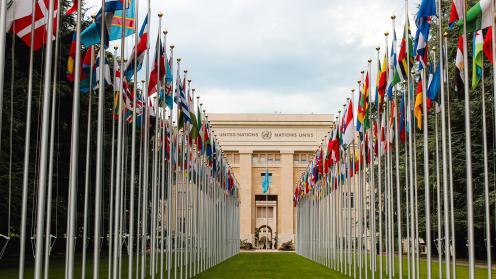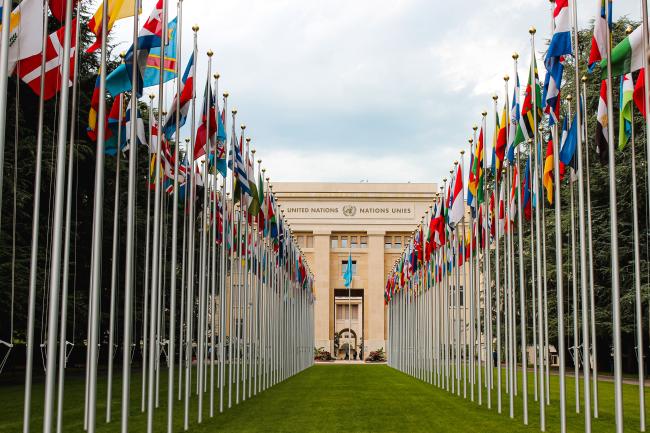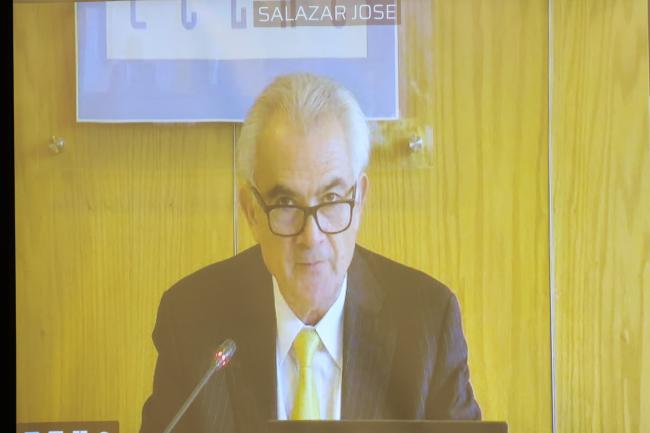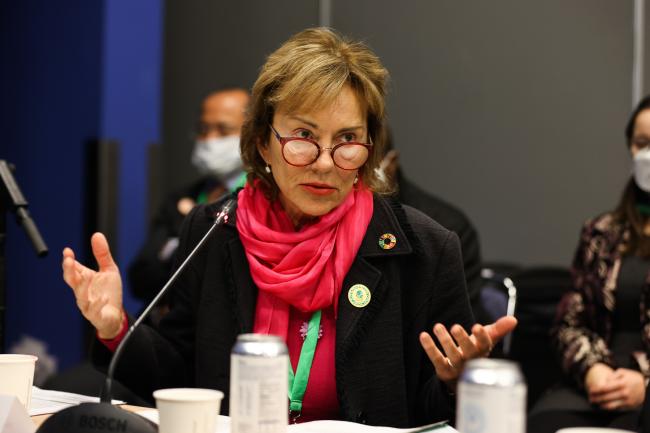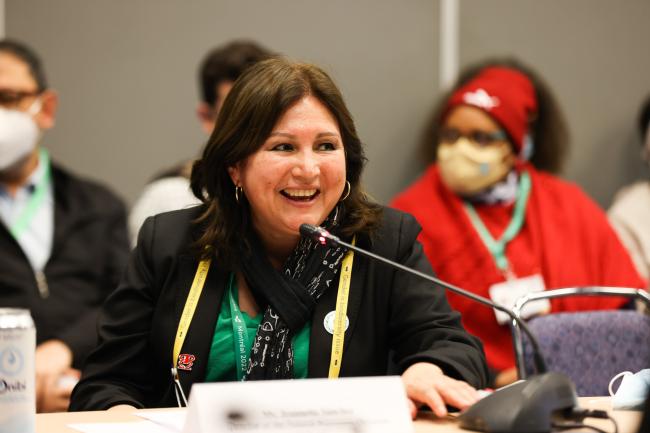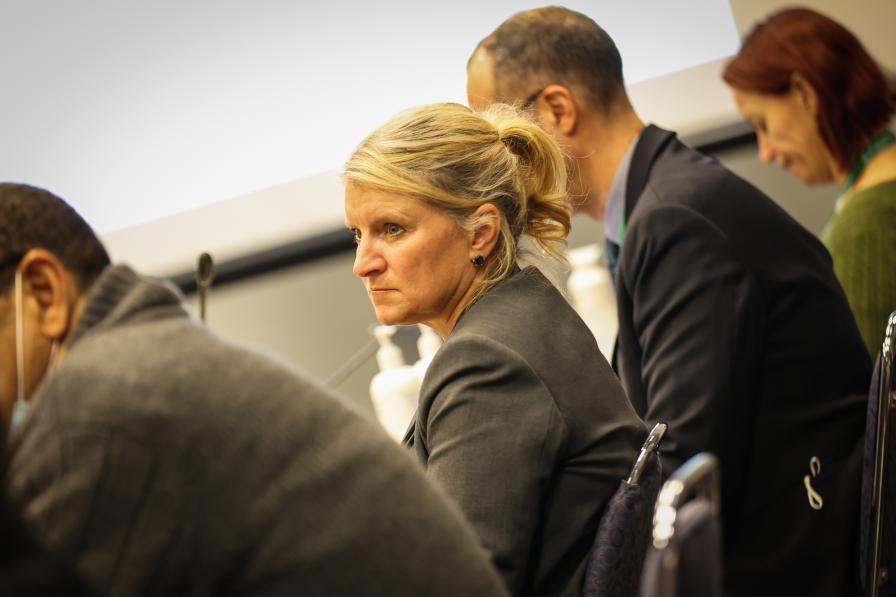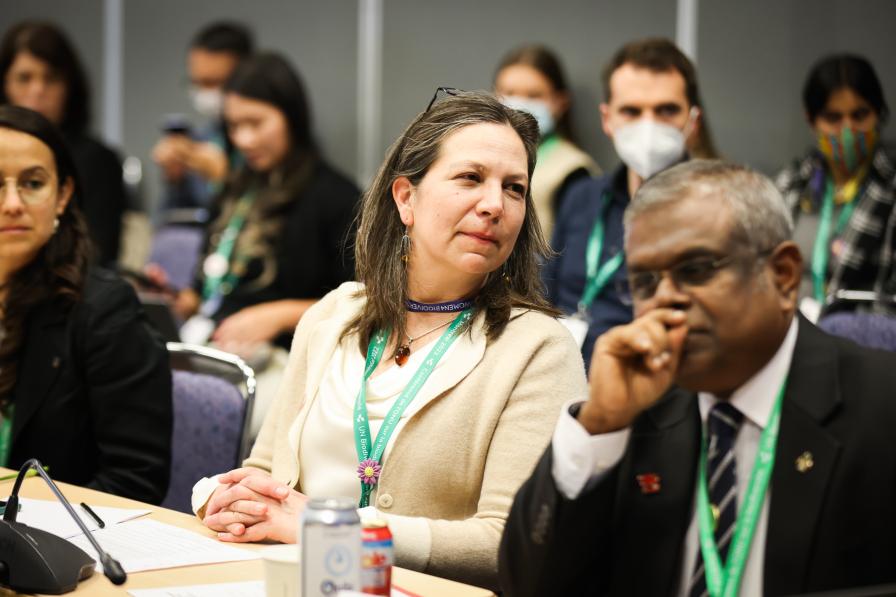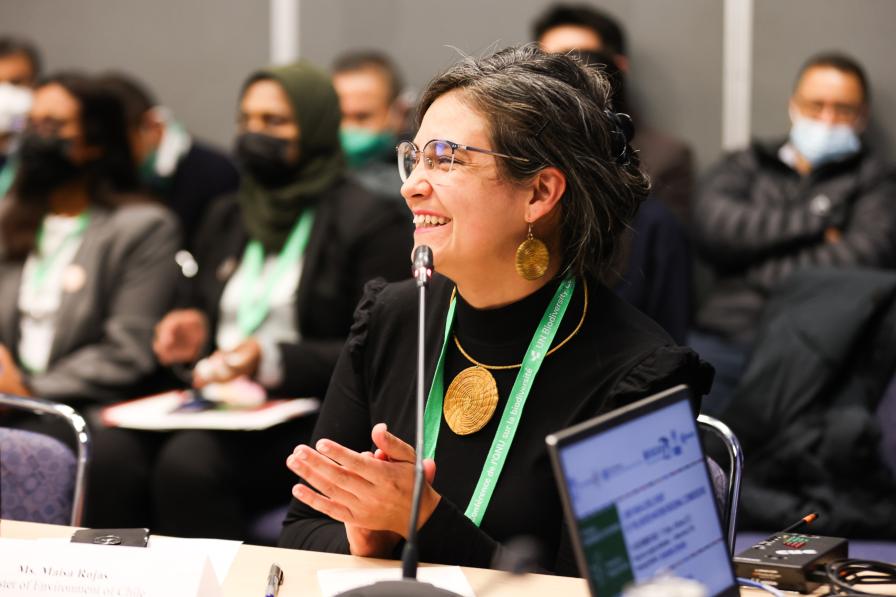About
The regional economic commissions showcased how they are working to incorporate biodiversity targets into their portfolios.
A high-level event of the regional economic commissions (RECs) at the fifteenth meeting of the Conference of the Parties to the Convention on Biological Diversity (CBD COP 15) provided the opportunity to highlight regional contributions to achieve the global goal of saving biodiversity by implementing Sustainable Development Goal (SDG) 14 (life below water) and SDG 15 (life on land). The RECs showcased how they are working to incorporate biodiversity targets into their portfolios.
Femi Oke, journalist, moderated this session. Olga Algayerova, Executive Secretary, Economic Commission for Europe (ECE), and RECs Coordinator, highlighted UN collaboration on mainstreaming CBD implementation in all UN policies. She said RECs: collect data on biodiversity and rights-based legal, institutional, and policy frameworks, facilitating access to it; strengthen environmental governance; and support countries to mobilize innovative finance.
José Manuel Salazar-Xirinachs, Executive Secretary, Economic Commission for Latin America and the Caribbean (ECLAC), reported ECLAC strategies including: new governance models; encouraging investment in conservation, sustainable use, and recovery of biodiversity; disseminating best practices; and multistakeholder dialogues. He noted regional progress in, inter alia:
- the bio- and circular economies;
- small-, micro-, medium-sized enterprises;
- environmental accounting;
- health information;
- indicators for monitoring implementation of SDGs 14 and 15; and
- advancing the Escazú Agreement on the rights of environmental defenders.
Antonio Pedro, Acting Executive Secretary, Economic Commission for Africa (ECA), underscored nature’s importance for achieving the SDGs, the African Union’s Agenda 2063, and economic structural transformation on the continent. He called for innovative financing and highlighted the need to demonstrate biodiversity’s value through mainstreaming natural capital accounting and raising the status of national and regional statistical offices throughout the African Continental Free Trade Area (AfCFTA) agreement. He stated that solutions to increasing the continent’s fiscal space lie within the continent itself.
Rola Dashti, Executive Secretary, Economic and Social Commission for Western Asia (ESCWA), highlighted that over 90% of land in the region is arid and climate change is exacerbating this and related challenges. She called for a coordinated and holistic approach to address biodiversity loss, including through awareness raising, financing, and monitoring. She noted the launch of a regional multistakeholder project to finance bankable green projects, supported by Sweden, and reaffirmed ESCWA’s commitment to preserving and protecting biodiversity.
Armida Salsiah Alisjahbana, Executive Secretary, Economic and Social Commission for Asia and the Pacific (ESCAP), via video, said ecological civilization means a home for all life on Earth, requiring an integrated approach to reverse environmental degradation, and stated ESCAP’s commitment to, inter alia, Ocean biodiversity and environmental rights. Calling regions the bridge between the global and national levels, she underscored that ESCAP supports the One Health Approach and management of biodiversity beyond national jurisdictions.
During the ensuing discussion, Algayerova, for the UNECE, noted a lack of clear positive trends on the status of ecosystems in Europe. She called on governments to reform biodiversity-negative subsidies and incentives and implement new biodiversity-positive ones and produce standards, norms, frameworks, and guidelines as tools for reducing biodiversity loss. She cited several multilateral environmental treaties, including the Espoo, Air, Water, and Aarhus Conventions, noting many are open to global accession. She highlighted UNECE environmental and biodiversity monitoring programmes and UNECE-FAO sustainable forest management activities.
Chile drew attention to youth mobilization in driving the environmental agenda, highlighting the relevance of accountability and transparency systems, and stressed the importance of harmonized agendas in implementing biodiversity-related actions.
The Maldives shared that with the adoption of frameworks and targets, countries – in particular “large Ocean states” – can choose to adopt regional measures to help them better implement these frameworks, underscoring that this cooperation should transcend regional boundaries.
Egypt spoke on how ministries have institutionalized the Convention on Biological Diversity (CBD) in responses to climate change, which requires, among others: capacity building; finance; and development of policies, regulations, and laws. He advocated innovative tools and mechanisms, including for the private sector, for financing and developing bankable projects.
France said his country is supporting ten countries for the post-2020 global biodiversity framework (GBF) implementation, using a multilevel approach, addressing sustainable production and consumption and transboundary “ecological collectivities.” He called for the RECs’ key partners to implement a “whole of society approach” to tackle the roots of biodiversity loss.
In the ensuing discussion, participants and panelists addressed:
- the need for data to understand the drivers of biodiversity loss beyond natural capital accounting;
- the role of regional instruments in helping stakeholders access biodiversity and environmental justice-related information;
- how to include young people in the implementation of the GBF, including by incorporating them in national delegations; and
- how climate action can generate employment for young Africans and others.
Organizers: UNECE
Contact: Marco Keinger marco.keiner@un.org and Elena Santer elena.santer@un.org
For more information: https://unece.org/sustainable-development/events/high-level-event-un-regional-commissions-cbd-cop-15
Written and edited by Tallash Kantai, Vijay Kolinjivadi, PhD, and Deborah Davenport, PhD.
All ENB photos are free to use with attribution. For this event, please use: Photo by IISD/ENB | Natalia Mroz
To receive free coverage of global environmental events delivered to your inbox, subscribe to the ENB Update newsletter.
